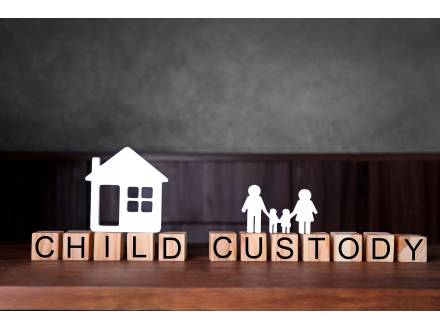 630-393-3111
630-393-3111
4200 Cantera Drive, Suite 200 | Warrenville, IL 60555
Recent Blog Posts
The Legal Nuances of Cohabitation in Relation to Alimony
 Although most people who receive spousal maintenance in Illinois understand that those payments will stop if they remarry, cohabitation, or living with another person, can also result in the termination of monthly payments. A complex group of factors must be carefully navigated to avoid the termination of monthly spousal maintenance payments – which could be a financial lifeline for you at this point in your life.
Although most people who receive spousal maintenance in Illinois understand that those payments will stop if they remarry, cohabitation, or living with another person, can also result in the termination of monthly payments. A complex group of factors must be carefully navigated to avoid the termination of monthly spousal maintenance payments – which could be a financial lifeline for you at this point in your life.
Perhaps you are not cohabitating with another person in the romantic sense; rather, you are renting out a room in your home to an old friend who just happens to be of the opposite sex. Even though you may only be trying to bring in some needed cash while helping an old friend, appearances can be everything. It could be helpful to speak to an experienced Naperville, IL spousal maintenance lawyer from Calabrese Associates, P.C., who can determine where you stand legally.
What Impact Could Divorce Have on Daycare Decisions?
 Many parents must work to pay necessary expenses. After a divorce, money may be tighter for both parties, making working even more vital. This means that younger children may need daycare when no close family member can care for them. As of 2023, about 23 million children ages five and under lived in the United States, with seventy-one percent of them living in households where both parents work. As a result, many working parents need some form of childcare arrangements.
Many parents must work to pay necessary expenses. After a divorce, money may be tighter for both parties, making working even more vital. This means that younger children may need daycare when no close family member can care for them. As of 2023, about 23 million children ages five and under lived in the United States, with seventy-one percent of them living in households where both parents work. As a result, many working parents need some form of childcare arrangements.
If you are in the middle of a divorce and are facing issues with the allocation of parental responsibilities and child support, you may wonder how your child’s daycare could be affected. Will you be able to continue to afford daycare, or will your ex be required to pay at least half? Speaking to a knowledgeable Naperville, IL child support attorney from Calabrese Associates, P.C. can be helpful as you sort out the details of your divorce.
Should I Sign a Prenuptial Agreement with an Alimony Waiver?
 Prenuptial agreements are becoming much more common across the United States. A significant percentage (19 percent) of prenuptial agreements are prepared in New York, followed closely by California and Florida. In most cases, one partner in the relationship is the driving force behind the prenuptial agreement. The reasons for seeking a prenuptial agreement range from protecting business interests to providing for children from a previous marriage.
Prenuptial agreements are becoming much more common across the United States. A significant percentage (19 percent) of prenuptial agreements are prepared in New York, followed closely by California and Florida. In most cases, one partner in the relationship is the driving force behind the prenuptial agreement. The reasons for seeking a prenuptial agreement range from protecting business interests to providing for children from a previous marriage.
If your fiancé asks you to waive spousal support in a prenuptial agreement, should you agree? Of course, there are many factors to consider in an important decision like this, and the decision should not be taken lightly. It can be beneficial to speak to an experienced Naperville, IL family law attorney from Calabrese Associates, P.C. who can help you decide whether signing a prenuptial with an alimony waiver is in your best interests.
When a Parent’s Move Causes Difficulties for the Other Parent
 The allocation of parental responsibilities often comes with what may seem like constant difficulties with your ex. This can include when the other parent moves within the 25-mile allowable range, and you realize that move is leaving you with less and less time with your child. Years ago, the laws governing how far a primary residential parent can move in Illinois without court approval changed.
The allocation of parental responsibilities often comes with what may seem like constant difficulties with your ex. This can include when the other parent moves within the 25-mile allowable range, and you realize that move is leaving you with less and less time with your child. Years ago, the laws governing how far a primary residential parent can move in Illinois without court approval changed.
Up until the change, the primary residential parent could move anywhere within the state without Court approval or the approval of the other parent. This changed to allow the primary residential parent to move up to 25 miles without court approval, although these 25 miles can potentially cross a state line. To move farther than this, the parent needs approval. The 25-mile rule applies to parents living in Cook, DuPage, Kane, Lake, Henry, and Will Counties. Outside these six counties, the limit is 50 miles.
What if you are the parent awarded parenting time (formerly "visitation"), and this move has resulted or will result in difficulties in spending time with your child? Can you object to the move? Can you ask the Court for a modification of the allocation of parental responsibilities? Talking to an experienced Naperville, IL custody attorney from Calabrese Associates, P.C. can help you determine whether you have any options in this situation.
What Can I Do If My Ex Only Feeds Our Child Junk Food? | IL
 The allocation of parental responsibilities can be one of the tougher parts of your divorce. Decisions must be made that are in the best interests of your child, regardless of how you or your ex feel about it. Old grievances and feelings toward your ex must be set aside in order to work together for the good of your child. The following scenario could apply to virtually any issue that divides parents and makes co-parenting difficult.
The allocation of parental responsibilities can be one of the tougher parts of your divorce. Decisions must be made that are in the best interests of your child, regardless of how you or your ex feel about it. Old grievances and feelings toward your ex must be set aside in order to work together for the good of your child. The following scenario could apply to virtually any issue that divides parents and makes co-parenting difficult.
You and your ex share custody of your seven-year-old daughter. Two years after the divorce, the two of you have been mostly successful at putting aside your differences when it comes to parenting. Recently, your daughter has put on a significant amount of weight. She is self-conscious about the weight gain, has stopped her normal outside activities, and is having constant colds, flu, and stomach issues. Your daughter has told you that when she is with her dad, they eat nothing but fast food and that the house is full of chips and chocolate.
Can I Be Awarded Custody of My Pet During My IL Divorce?
 While pets have long been considered "property" to be divided during a divorce under the rules of equitable distribution, as of January 2018, the state of Illinois allows judges to consider the well-being of the pet. Pets and their owners often have deep emotional bonds, and breaking those bonds can be harmful to the owner and the pet. Unfortunately, some spouses use pets as a bargaining chip to get what they want from the divorce.
While pets have long been considered "property" to be divided during a divorce under the rules of equitable distribution, as of January 2018, the state of Illinois allows judges to consider the well-being of the pet. Pets and their owners often have deep emotional bonds, and breaking those bonds can be harmful to the owner and the pet. Unfortunately, some spouses use pets as a bargaining chip to get what they want from the divorce.
In particular, if the pet or pets largely belong to one spouse, the other may threaten to keep the pet if he or she does not get everything asked for. As the law has continued to evolve since 2018 regarding pet custody, you should discuss your issues with an experienced Naperville, IL divorce attorney from Calabrese Associates, P.C. who can apply these changes to your current situation. Attorney Michael J. Calabrese is committed to keeping you updated regarding all important developments throughout the progression of your case.
What Are the Five Stages of Divorce – And Which is the Worst?
 Many people are familiar with the five stages of grief following the death of a loved one. A divorce, while not a death, is still a loss. The end of a marriage is so painful because it not only includes the loss of a partnership but also the loss of the dreams and commitments shared by the couple. Like death, divorce is life-altering for many, resulting in an array of emotions along with changes and challenges.
Many people are familiar with the five stages of grief following the death of a loved one. A divorce, while not a death, is still a loss. The end of a marriage is so painful because it not only includes the loss of a partnership but also the loss of the dreams and commitments shared by the couple. Like death, divorce is life-altering for many, resulting in an array of emotions along with changes and challenges.
When a couple decides to divorce, no matter how friendly the divorce begins, the process can be filled with landmines. Marital assets must be divided up, spousal support must be determined, and perhaps the marital home will be sold. If there are children, the allocation of parental responsibilities and child support must be determined, and a parenting plan must be prepared.
Trying to accomplish any of these things on your own can make the divorce much more difficult and time-consuming. When you have an experienced Naperville, IL divorce attorney from Calabrese Associates, P.C. as your legal advocate, you can expect an easier, quicker process and you can be sure your rights are being protected at every turn.
Can Intrusive In-Laws Impact My Custody and Parenting Plan?
 Many couples have found that behaviors by in-laws they might have considered a bit quirky before the marriage can quickly become intrusive. Unfortunately, there is no rule book for how to handle your in-laws after marriage, and while in-law troubles may not cause divorce, they can certainly be a contributing factor. The trouble may not be that a spouse’s in-laws behave badly but that the spouse resents the fact that a husband or wife is not giving first loyalty to the marriage during these squabbles.
Many couples have found that behaviors by in-laws they might have considered a bit quirky before the marriage can quickly become intrusive. Unfortunately, there is no rule book for how to handle your in-laws after marriage, and while in-law troubles may not cause divorce, they can certainly be a contributing factor. The trouble may not be that a spouse’s in-laws behave badly but that the spouse resents the fact that a husband or wife is not giving first loyalty to the marriage during these squabbles.
Communication difficulties, poor conflict resolution, and a partner’s lack of respect all made it into the top 10 reasons for divorce. By extension, a partner who refuses to address the problem of intrusive in-laws and does not respect his or her spouse’s feelings on the matter makes intrusive in-laws a probable factor in divorce. But what if intrusive in-law problems follow you after the divorce, impacting the allocation of parental responsibilities and peaceful co-parenting?
What if My Ex Does Not Want Visitation with the Children?
 In most cases, during the allocation of parental responsibility, both parents want to see their children as often as possible. But what if your ex simply walks away after the divorce, perhaps even moving out of state, and makes no effort to see the children? What if you see your children waiting anxiously for their visitation time only to have your ex cancel time after time?
In most cases, during the allocation of parental responsibility, both parents want to see their children as often as possible. But what if your ex simply walks away after the divorce, perhaps even moving out of state, and makes no effort to see the children? What if you see your children waiting anxiously for their visitation time only to have your ex cancel time after time?
As heartbreaking as this is, are there any legal avenues for forcing a parent to take advantage of visitation time? The answer is probably "no." Since visitation is considered a "right," people cannot be penalized for choosing not to exercise that right.
There may, however, be steps you can take which are best explained by a family law attorney from Calabrese Associates, P.C.. If you have an experienced Naperville, IL custody lawyer who can fully explain Illinois laws regarding the allocation of parental responsibility, you are better able to make informed decisions.
Can Child Influencer Regulations Affect Custody
 Children under 16 who earn money on social media via an adult are now subject to a new Illinois law designed to protect them. As of July 1, any adult who is financially compensated for sharing information about children under 16 online will be required to put a certain percentage of the profits into a blocked trust for the child. Minors are also allowed to sue their parents or other adults who profited from content that included the child yet failed to safeguard the money.
Children under 16 who earn money on social media via an adult are now subject to a new Illinois law designed to protect them. As of July 1, any adult who is financially compensated for sharing information about children under 16 online will be required to put a certain percentage of the profits into a blocked trust for the child. Minors are also allowed to sue their parents or other adults who profited from content that included the child yet failed to safeguard the money.
The question now is how a parent making money from their child’s frequent appearance on social media might affect their allocation of parental responsibility or child support. Perhaps a parent in the middle of a custody dispute believes the other parent's social media exposure of the child is not healthy or safe for the child. If the child is young, the other parent might even believe the exposure is exploitative. While this is a relatively new area, those in this situation should speak to a knowledgeable Naperville, IL child custody attorney from Calabrese Associates, P.C..


 4200 Cantera Drive, Suite 200, Warrenville, IL 60555
4200 Cantera Drive, Suite 200, Warrenville, IL 60555 630-393-3111
630-393-3111





